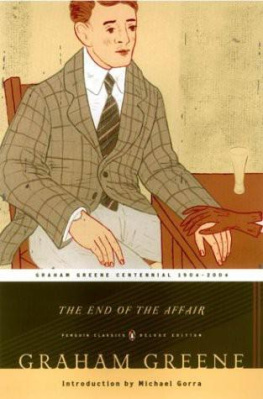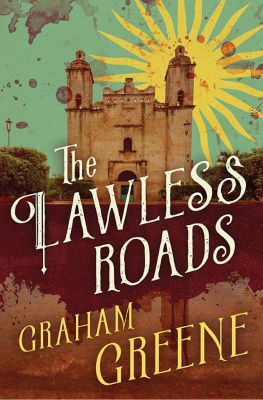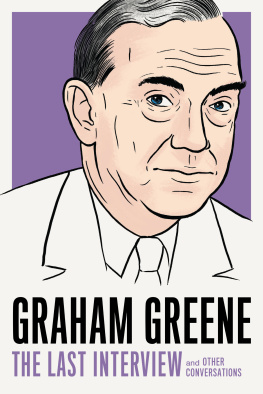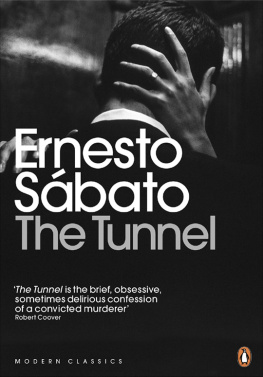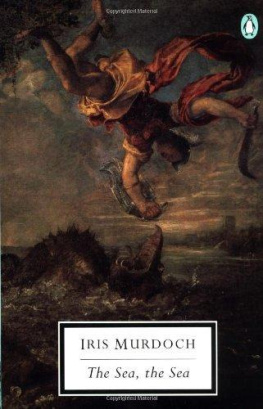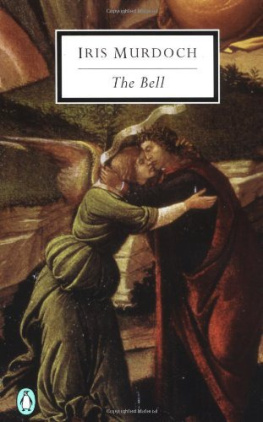Graham Greene - Stamboul Train: An Entertainment (Penguin Twentieth-Century Classics)
Here you can read online Graham Greene - Stamboul Train: An Entertainment (Penguin Twentieth-Century Classics) full text of the book (entire story) in english for free. Download pdf and epub, get meaning, cover and reviews about this ebook. genre: Detective and thriller. Description of the work, (preface) as well as reviews are available. Best literature library LitArk.com created for fans of good reading and offers a wide selection of genres:
Romance novel
Science fiction
Adventure
Detective
Science
History
Home and family
Prose
Art
Politics
Computer
Non-fiction
Religion
Business
Children
Humor
Choose a favorite category and find really read worthwhile books. Enjoy immersion in the world of imagination, feel the emotions of the characters or learn something new for yourself, make an fascinating discovery.

- Book:Stamboul Train: An Entertainment (Penguin Twentieth-Century Classics)
- Author:
- Genre:
- Rating:5 / 5
- Favourites:Add to favourites
- Your mark:
- 100
- 1
- 2
- 3
- 4
- 5
Stamboul Train: An Entertainment (Penguin Twentieth-Century Classics): summary, description and annotation
We offer to read an annotation, description, summary or preface (depends on what the author of the book "Stamboul Train: An Entertainment (Penguin Twentieth-Century Classics)" wrote himself). If you haven't found the necessary information about the book — write in the comments, we will try to find it.
Stamboul Train: An Entertainment (Penguin Twentieth-Century Classics) — read online for free the complete book (whole text) full work
Below is the text of the book, divided by pages. System saving the place of the last page read, allows you to conveniently read the book "Stamboul Train: An Entertainment (Penguin Twentieth-Century Classics)" online for free, without having to search again every time where you left off. Put a bookmark, and you can go to the page where you finished reading at any time.
Font size:
Interval:
Bookmark:
'Perhaps a month. Perhaps longer.' She whispered with such regret: 'So soon,' that he began to promise many things which he knew very well he would regret in daylight. 'You can come back with me. I'll give you a flat in town.'
Her silence seemed to emphasize the wildness of his promises. 'Don't you believe me?'
'Oh,' she said in a voice of absolute trust, 'it's too good to be true.'
He was touched by the complete absence of coquetry, and remembered again with sudden force that he had been her first lover. 'Listen,' he said, 'will you come again tomorrow?' She protested with real apprehension that he would tire of her before they reached Constantinople. He ignored her objection. 'I'd give a party to celebrate.'
'Where? In Constantinople?'
'No,' he said, 'I've no one to invite there,' and for a moment the thought of Mr Eckman cast a shadow over his pleasure.
'What, in the train?' She began to laugh again, but this time in a contented and unfrightened way.
'Why not?' he became a little more boastful. 'I'd invite everyone. It'll be a kind of wedding dinner.'
She teased him: 'Without the wedding,' but he became the more pleased with his idea. 'I'll invite everyone: the doctor, that person in the second class, the inquisitive fellow (do you remember him?)' He hesitated for a second. 'That girl.'
'What girl?'
'That niece of your friend.' But his grandiloquence was a little dashed by the thought that she would never accept his invitation; she is not a chorus girl, he thought with shame at his own ingratitude, she is not pretty and easy and common, she is beautiful, she is the kind of woman I should like to marry; and for a moment he contemplated with a touch of bitterness her inaccessibility. Then he recovered his spirits. 'I'll get the fiddler,' he boasted, 'to play to us while we eat.'
'You wouldn't dare to invite them,' she said with shining eyes.
'I will. They'll never refuse the kind of dinner I'll pay for. We'll have the best wine they can give us,' he said, making rapid calculations of cost and choosing to forget that a train reduces all wine to a common mediocrity. 'It'll cost two pounds a head.'
She beat her hands together in approval. 'You'll never dare tell them the reason.'
He smiled at her. 'I'll tell them it's to drink the health of my mistress.' For a long time then she lay quiet, dwelling on the word and its suggestion of comfort and permanence, almost of respectability. Then she shook her head. 'It's too good to be true,' but her expression of disbelief was lost in the whistle of steam and the grinding of the wheels into motion.
While the couplings between the carriages strained and the signal burning a green light lurched slowly by, Josef Gr was saying: 'I am the President of the Republic.' He woke as a gentleman in a tail-coat was about to present him with a golden key to open the new city safe deposits; he woke at once to a full knowledge of his surroundings and to a full memory of his dream. Leaning his hands upon his fat knees he began to laugh. President of the Republic, that's good, and why not? I can spin a yarn all right. Kolber and that doctor both deceived in one day. Five English pounds he gave me, because I was sharp and spotted what he was when he said: 'Police spy.' Quick, that's Josef Gr all over. 'Look over there, Herr Kolber.' Flick at the string, aim, fire, all in one second. And I've got away with it too. They can't catch Josef. What was it the priest said? Josef began to laugh deep down in his belly. 'Do you play cricket in Germany?' And I said: 'No, they teach us to run. I was a great runner in my time.' That was quick if you like, and he never saw the joke, said something about 'Sobs and Hudglich '.
But it was a bad moment all the same, thought Josef, staring out into the falling snow, when the doctor spotted that his bag had been moved. I'd got my finger on the string. If he'd tried to call the guard I'd have shot him in thtomach before he could shout a word. Josef laughed again happily, feeling his revolver rub gently against the sore on the inside of his knee: I'd have spilt his guts for him.
PART FOUR
Subotica
THE telegraph receiving set in the station-master's office at Subotica flickered; dots and dashes were spilt into the empty room. Through the open door Lukitch, the clerk, sat in a corner of the parcels office and cursed the importunate sounds. But he made no effort to rise. 'It can't be important at this hour,' he explained to the parcels clerk and to Ninitch, a young man in a grey uniform, one of the frontier guards. He shuffled a pack of cards and at the same time the clock struck seven. Outside an indeterminate sun was breaking over grey half-melted snow, the wet rails glinted. Ninitch sipped his glass of rakia; the heavy plum wine brought tears to his eyes; he was very young.
Lukitch went on shuffling. 'What do you think it's all about?' asked the parcels clerk. Lukitch shook his grimy tousled head. 'One can't tell of course. But I shouldn't be surprised all the same. It will serve her right.' The parcels clerk began to giggle. Ninitch raised his dark eyes, that could contain no expression save simplicity, and asked: 'Who is she?' To his imagination the telegraph began to speak in an imperious feminine way.
'Ah, you soldiers,' said the parcels clerk. 'You don't know half of what goes on.'
'That's true,' Ninitch said. 'We stand about for hours at a time with our bayonets fixed. There's not going to be another war, is there? Up to the barracks and down to the station. We don't have time to see things.' Dot, dot, dot, dash, went the telegraph. Lukitch dealt the pack into three equal piles; the cards sometimes stuck together and he licked his fingers to separate them. He ranged the three piles side by side in front of him. 'It's probably the station-master's wife,' he explained. 'When she goes away for a week she sends him telegrams at the oddest times, every day. Late in the evening or early in the morning. Full of tender expressions. In rhyme sometimes: "Your little dove sends all her love", or "I think of you faithfully and ever so tenderly".'
'Why does she do it?' asked Ninitch. 'She's afraid he may have one of the servants in bed with him. She thinks he'll repent if he gets a telegram from her just at the moment.'
The parcels clerk giggled. 'And of course the funny part is, he wouldn't look at his servants. His inclinations, if she knew it, are all the other way.'
'Your bets, gentlemen,' said Lukitch and he watched them narrowly, while they put copper coins on two of the piles of cards. Then he dealt out each pack in turn. In the third pack, on which no money had been placed, was the knave of diamonds. He stopped dealing and pocketed the coins. 'Bank wins,' he said and passed the cards to Ninitch. It was a very simple game.
The parcels clerk stubbed out his cigarette and lit another, while Ninitch shuffled. 'Was there any news on the train?'
'Everything quiet in Belgrade,' said Lukitch. 'Is the telephone working?'
'Worse luck.' The telegraph had stopped buzzing, and Lukitch sighed with relief. 'That's over, anyway.'
The soldier suddenly stopped shuffling and said in a puzzled voice: 'I'm glad I wasn't in Belgrade.'
'Fighting, my boy,' said the parcels clerk hilariously. 'Yes,' said Ninitch shyly, 'but they were, weren't they, our own people? It was not as if they were Bulgars.'
'Kill or be killed,' said the parcels clerk. 'Come, deal away, Ninitch, my boy.'
Ninitch began to deal; several times he lost count of the cards; it was obvious that something was on his mind.
'And then, what did they want? What did they want to get by it all?'
'They were Reds,' said Lukitch.
'Poor people? Make your bets, gentlemen,' he added mechanically. Lukitch piled all the coppers he had won on the same heap as the parcels clerk; he caught the clerk's eye and winked; the other man increased his bet. Ninitch was too absorbed in his slow clumsy thoughts to realize that he had shown the position of the knave when he dealt. The parcels clerk could not restrain a giggle. 'After all,' said Ninitch, 'I am poor, too.'
Next pageFont size:
Interval:
Bookmark:
Similar books «Stamboul Train: An Entertainment (Penguin Twentieth-Century Classics)»
Look at similar books to Stamboul Train: An Entertainment (Penguin Twentieth-Century Classics). We have selected literature similar in name and meaning in the hope of providing readers with more options to find new, interesting, not yet read works.
Discussion, reviews of the book Stamboul Train: An Entertainment (Penguin Twentieth-Century Classics) and just readers' own opinions. Leave your comments, write what you think about the work, its meaning or the main characters. Specify what exactly you liked and what you didn't like, and why you think so.

